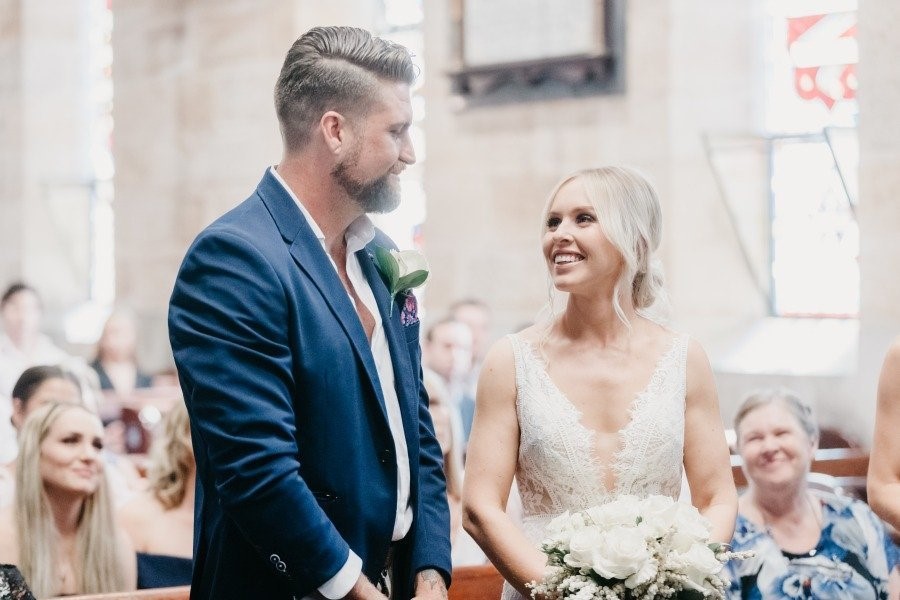Post-Wedding Blues: How to Cope After The Big Day
The day you’ve been dreaming of for months, maybe even years, has finally come and gone. Your wedding day was a whirlwind of love, joy, and celebration—and so was the honeymoon! But now that you’re home, you’re noticing a feeling of emptiness and sadness. You might be experiencing what is commonly known as “post-wedding blues.” In this blog, we will explore the post-wedding blues — what causes it, the signs and symptoms, and most importantly, how to cope with this emotional rollercoaster.
What Are Post-Wedding Blues?
Post-wedding blues, also known as post-wedding depression, are the feelings of sadness, emptiness, and sometimes even anxiety that can follow the excitement of your wedding day. It’s a normal reaction to a significant life event coming to an end, especially one as emotionally charged as a wedding. For many, it’s a letdown after the high of the big day.
What Causes Post-Wedding Blues?
Emotional High to Emotional Lull: The transition from planning and experiencing the euphoria of your wedding day to everyday life can be abrupt and challenging. The stark contrast in emotional intensity can lead to post-wedding blues. To lessen this intense transition, make sure you’re taking care of yourself while wedding planning.
Anticlimax: The months and sometimes years of anticipation can make the actual day feel like an anticlimax. After the adrenaline rush of your wedding, the everyday routine can seem mundane by comparison. However, it’s important to remember that your wedding day is just the beginning of a beautiful journey together! While it’s natural to feel a temporary letdown, this is where your real adventure as a married couple truly begins. Embrace the everyday moments, travel often, and continue building your life together. The joy of marriage is a lasting and fulfilling one that extends far beyond the wedding day! Prioritize your marriage over your wedding day, and you’ll find that the best moments are still to come.
Loss of Focus: Many couples become so engrossed in wedding planning that they lose sight of their long-term goals and aspirations. After the wedding, they may struggle to find a new sense of purpose and direction.
Signs and Symptoms of Post-Wedding Blues
Recognizing the signs and symptoms of post-wedding blues is the first step in coping with them. Most commonly, people experience feelings of sadness or disappointment, a deep sense of emptiness or aimlessness, anxiety regarding the future or the marriage, shifts in sleep patterns (ranging from insomnia to oversleeping), challenges in concentrating or decision-making, episodes of irritability or mood swings, and instances of withdrawal from friends and family.
How to Cope with Post-Wedding Blues
Rest assured, and resist the temptation to fall down the WebMD rabbit hole! Typically, post-wedding blues are a passing phase that generally doesn’t linger for more than two weeks, and most people find that these feelings gradually ease on their own. Here are some tips to help you manage your emotions.
Acknowledge Your Feelings: The first step in coping with post-wedding blues is to acknowledge and accept your emotions. It’s normal to feel this way—in fact, a study found that 12 percent of new brides and grooms experienced meaningful or clinical levels of depression after their wedding. It’s okay to grieve the end of one chapter of your life while looking forward to the next.
Communicate with Your Spouse: Share your feelings with your partner. They are likely experiencing similar emotions and can provide support and understanding. Remember that you’re in this together.
Reconnect with Hobbies and Interests: Rekindle your interests and hobbies that may have taken a backseat during wedding planning. Engaging in activities you love can help restore a sense of purpose.
Set New Goals: Establish new goals for your life together as a married couple. Whether it’s planning for a family, career aspirations, or travel, having something to look forward to can be motivating. Not only can taking a trip together be something fun to look forward to, but it may actually improve long-term marital satisfaction!
Stay Connected with Loved Ones: Don’t isolate yourself. Spend time with friends and family who can offer support and help distract you from your post-wedding blues.
Seek Professional Help: If the post-wedding blues persist and interfere with your daily life, consider talking to a therapist or counselor. They can provide strategies to manage your emotions and help you navigate this transitional period.
Post-wedding blues are a common experience after the excitement of your wedding day, but they don’t have to define your marriage’s early days. By acknowledging your feelings, communicating with your spouse, and taking proactive steps to set new goals and stay connected with loved ones, you can transition into your married life with grace and positivity. Remember, your wedding is just the beginning of a beautiful journey together.















